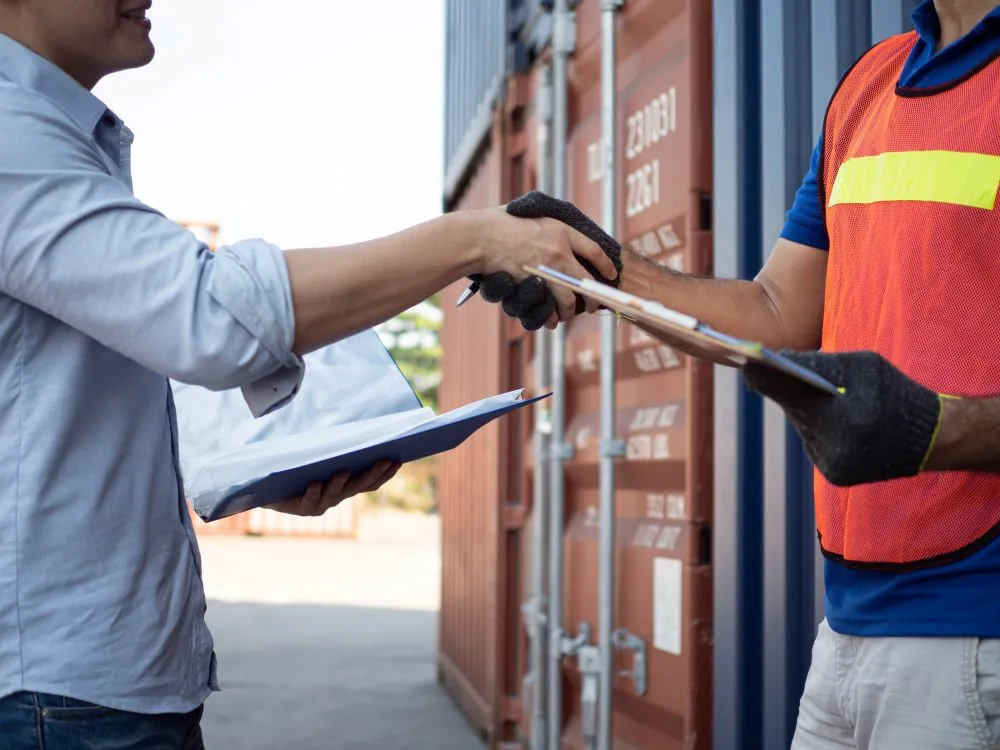
Purchasing, in business, refers to the organized acquisition of goods and services on behalf of a buying entity. Purchasing departments are hugely important in many industries, ensuring that items like raw materials, components, event decorations, etc. arrive in a timely manner and at a reasonable cost.
While it may not be the responsibility of the purchasing team itself to care about the insurance coverage of the businesses or individuals providing them with the goods and services—the company responsible for their purchasing must take this on as a responsibility. Otherwise, they open themselves up to potential claims, losses, and other third-party risk.
In this blog, we’ll explain what a COI or Certificate of Insurance is, how it pertains to purchasing, and how you can get help with managing the many COIs you may have to deal with on a daily basis.
What Is a COI and How Do I Get One?
When businesses begin working or building relationships with contractors, tenants, suppliers, or other vendors, they often require a COI or certificate of insurance for contractors. This is a document that summarizes a policyholder’s insurance coverage so that you can verify their coverage without leafing through a lengthy policy document.
Here’s how to get a COI Certification, keeping in mind some certificates of insurance best practices:
- Outline your needs, noting the specific policy that you want proof of, the policy limits you’re expecting, and any additional endorsements you require.
- Make the request formally and firmly. We recommend doing this via email or mail to create a paper trail proving that you asked in the case that that could matter.
- Ensure that the policyholder works with their insurer to generate the document—only the insurer providing the coverage can issue the relevant COI.
- Verify the certificate once you have it in hand to make sure it meets your requirements.
- Enter your new business relationship with pride and peace of mind!
- Manage vendor COIs throughout the year to ensure that your suppliers and other business partners aren’t affected by unexpected lapses in coverage.
What Is a COI in Purchasing?
In purchasing, a COI directly pertains to the protection of purchased supplies or services. For example, when purchasing raw components for a manufacturing job, it’s important to ensure that the goods being delivered are protected. If no one verifies the insurance coverage of the business providing the goods, a trucking accident, bad parts delivery, or any number of other things that could go wrong, it could have a serious impact on your bottom line.
What Does a COI Mean in Contracting?
COIs are also especially popular in the industry of contracting and contract work. This is because, although these workers are not full-time hires working with your business, you are their employer and, thus, will be held accountable for accidents that they cause or are affected by.
In the construction world, COIs are important from when you order supplies for a job to when you find and hire talent to get it done, as they ensure that all hired third parties and vendors have appropriate protection in place throughout a project’s duration.
What Does a COI Include?
A COI form typically documents a few important pieces of policy information, including:
- Policyholder (the one being covered) name and information.
- Insurance agency (the one providing the coverage) name and information.
- Effective dates of coverage (so you know how long they’re covered for).
- Policy limits (so you know how much they’re covered for).
In addition, it includes:
- Certificate holder name and information (this will be you, the requester of the proof of coverage).
- Endorsements—these can make or break your liability should something happen.
What Is the Purpose of a COI?
A certificate of insurance proves to potential business partners and customers that a business or individual is properly covered with the right insurance and that it is safe for you to work with and purchase from them.
COIs, when verified and managed correctly, can protect you from potential risks, damage claims, regulatory issues, contract compliance issues, difficulties in claim adjustments stemming from losses, and more.
It’s common for potential clients to request a COI as a condition of doing business with someone, and in fact, you should start adhering to this business practice for all new vendors that you work with.
What Is the COI Used for?
Once you have a COI insurance for vendors or suppliers in hand, you should use it to verify a few pieces of crucial information:
- Assure that the name on the certificate matches up with the name of the person/business (policyholder) you want to work with.
- Assure the COI is for the right type of coverage and that your anticipated coverage amounts are met.
- Assure that their coverage will be in place for the timespan of your project. If the coverage is set to expire before then, make an internal note to request a renewal closer to then.
How Can I Get Help with My COI Management?
If you’re tired of the paperwork, the compliance requirements, the terminology, the coverage lapses, and most importantly—the claims and lawsuits stemming from a lack of third-party insurance coverage—we have your back. Contact us and learn how myCOI can help with your COI management today.